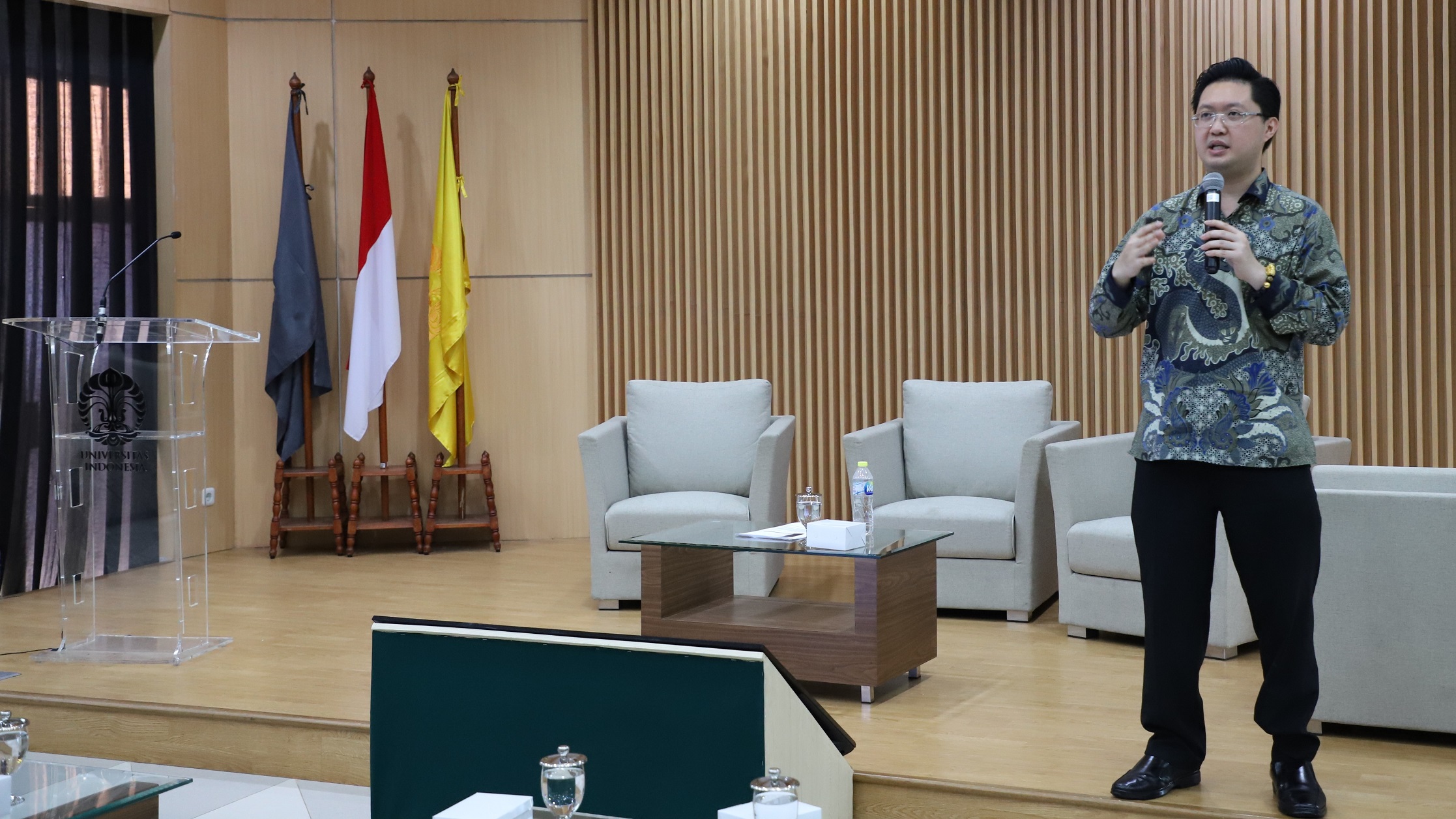Taxation Practitioners Share Experiences in Handling Disputes and Tax Courts
Melva Costanty – Humas FEB UI
DEPOK – Under the PP Law, tax disputes are tax disputes between taxpayers and authorized officials as a result of the issuance of a decision that can be Appealed or Claimed to the Tax court. Tax-related disputes, such as taxes collected by the central government and regional governments, including Customs and Excise, are tried by a tax court. The tax court is the first and last court of court in examining and deciding tax disputes.

The process of handling tax disputes and flows in the tax court was shared by Mulyono, Managing Partner Mul & Co., in the Guest Lecture with the theme Tax Court at the Soeria Admadja Auditorium, Dean Building, FEB UI, Depok Campus.

In the tax dispute, there are 5 channels, starting from the appeal, examination, objection, appeal, and lawsuit. Taxpayers get an appeal letter and then a tax assessment letter from the Tax Service office. If you object, the taxpayer can file an objection to the Regional Office of the Directorate General of Taxes. Objections submitted will go through an appeal and lawsuit process in the Tax Court. If taxpayers are not satisfied with the results, they can submit a review in the Supreme Court. The Supreme Court’s decision is a final decision that must be obeyed by taxpayers. In dealing with tax regulations, taxpayers are often confused.

As a professional, Mulyono said that assisting taxpayers is important because the tax sector has many ‘gray areas’. “We give advice to taxpayers. How to give understanding to them, because if from the side of the gray area, from the side of the Taxpayers do not understand. Well, if the gray area we have to tell if there is a kind of risk that they might be facing.”
As a FEB UI alumni, Mulyono feels happy to be back at campus. “I am very happy that I have graduated more than 10 years. and can share with friends who are still in college to complete the puzzle, to complete what is not in the textbook, to practice law in tax courts in particular. So they can know roughly if in the tax court how the practice. because specifically in the tax court, the textbook is still quite limited. “
Mulyono also shared tips for students interested in taxation. “My message is to master the rules first. So there are lots of gray areas, it’s clear. If my message is that there is a PPh Law, PPm is just mastered first. Master the text of the law first, so when we analyze the case of the taxpayer so we can better understand and can help explain to the tax authorities in this case and also to the taxpayer.” (des)






